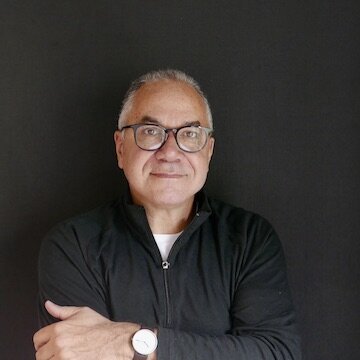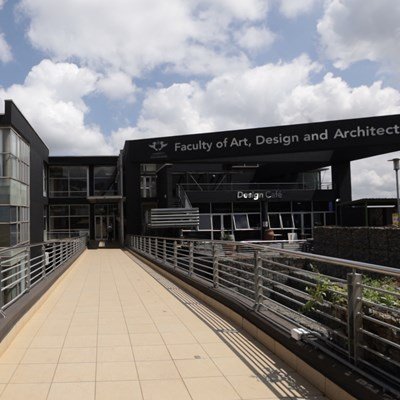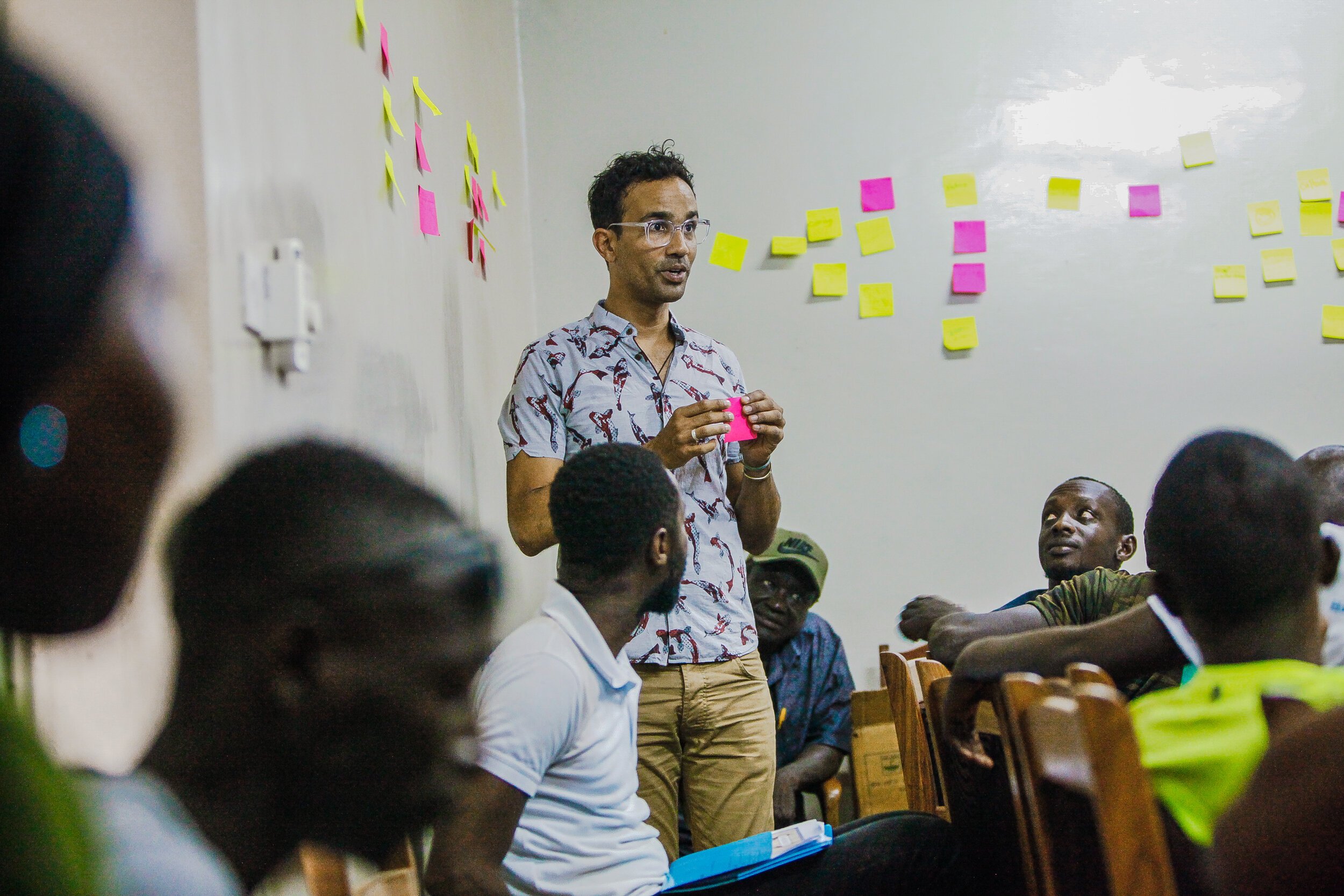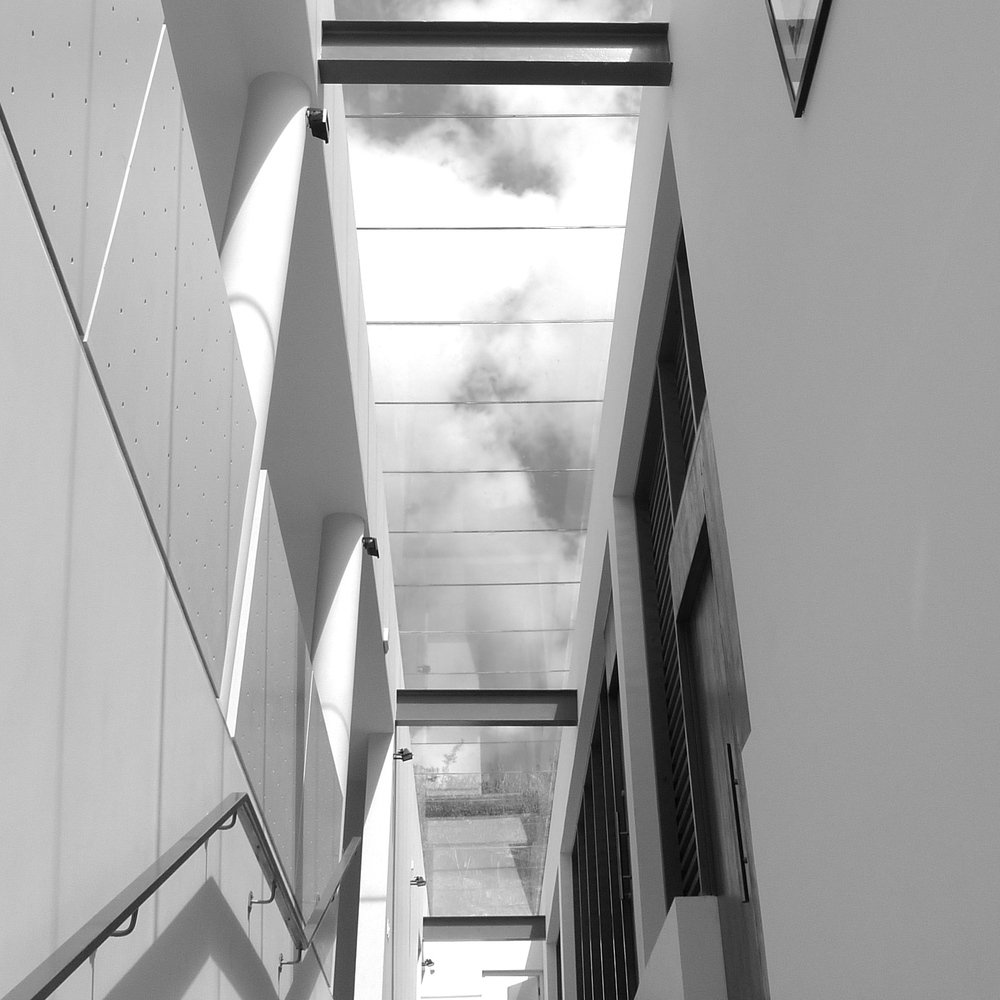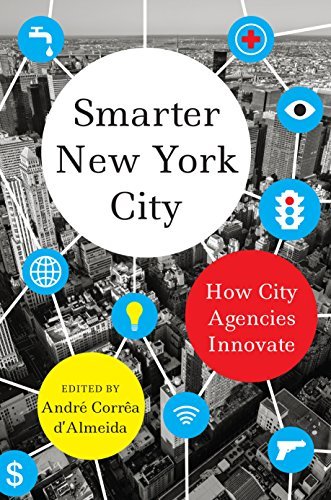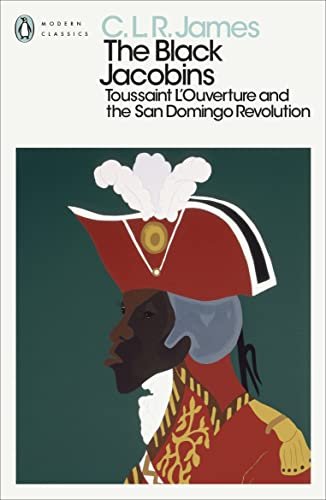New Systems of Value and Wealth with People in Mind
Have you ever questioned the systems of value and wealth currently in place in Western society? Value and wealth are no longer only linked to economic prosperity, and their definitions have evolved to speak on the quality of life - the relationships between people, the receptivity of the community, and its adaptation to community needs. We ask the question - what are the new systems of value and wealth that create thriving for all? How do we create it, and what are the parameters to responsibly designing it? In this conversation, we will shed light on current state of traditional economy-driven motivations for development, and highlight the new needs of people and our environment. We will explore definitions of the new wealth and value systems, and discuss tangible ways to bring these systems into fruition.
The Interview
Christopher Collens 0:03
Hello, good afternoon, everyone. Welcome to the third episode of the *details Speaker Series brought to you by Stardust Life-Centered Design. I'm Christopher Collens, a collaborator focusing on brand strategy at Stardust Life-Centered Design. Today with me here I have two giants in their relative industries. Both of them who I have to say I'm a fan of their works and their legacies: Gareth Jenkins and Mark Raymond.
Thank you for being here today.
Today's topic is New Systems of Value and Wealth with People in Mind. We hope to explore themes of how the existing systems and structures that exist today and no longer seem to meet the needs of the world around us, and how we can take positive steps and motion in the direction to make a better actionable future. With no further ado, I'd love to let you guys introduce yourself and let everyone know a little bit about you and some of the work that you do. We can start with you, Mark.
Mark Raymond 1:06
Photo of Mark Raymond
Image of the Graduate School of Architecture, in the University of Johannesburg in South Africa.
I'm Mark Raymond, and I'm currently the Director of the Graduate School of Architecture, in the University of Johannesburg in South Africa. But up until February of this year, I was practicing architecture in Trinidad where I have been practicing for a long time. But I've always been involved with education, and research. I pursued a PhD A few years ago, and that has now led me into full time teaching. As director of the Graduate School of Architecture, we have a very particular outlook on architecture, we're quite different from the other architecture schools in South Africa. The school is committed to the idea of transformative pedagogy, and that is an approach to teaching and learning that is concerned with societal, political, economic, and technical transformation. So that's what I'm involved with. I'm directing a school that is educating young South African and architects from other places into how they can apply architectural and design knowledge and thinking to transformational processes to transformation.
Gareth Jenkins 2:27
Gareth Jenkins - Place Branding Workshop, UN, The Gambia, 2019
I'll go next, I guess. So hello, there, I'm Gareth Jenkins. I'm currently a senior manager at EY wavespace in London. My background is really in design entrepreneurship. I spent a long time setting up and running a design practice in Trinidad and Tobago, which is how I got to meet everyone here. At the moment, I'm working quite heavily in innovation, particularly around the areas of sustainability - sort of using design thinking within EY to help our clients deal with dramatic change within their organizations, using processes of radical collaboration. I'm really happy to be here.
Christopher Collens 3:19
Image of EY wavespace in Canary Wharf, London
Awesome! And really, really radical work. I’m gonna have to say I've been following you guys from a distance and seeing a lot of this stuff. It's always so wonderful to see Trinis out in the world making massive change. So I'll dive right it with the first and a very broad question but I think given the broad scope of both your skills it helps. What are some non-traditional values you believe the world is moving towards? We can start with you, Gareth.
Gareth Jenkins 3:51
Yeah, I suppose it's interesting. I mean, I guess I would start with thinking about what traditional values are. So I suppose embedded in that are questions around monetary value; ascribing value to something because of what perhaps it's worth within a capitalist society. Perhaps how could it be considered exchange for money, that sort of thing. So I suppose when we're talking about non-traditional, we're talking about some of the intangibles, perhaps some of the things that don't feature when we're considering GDP.
I think it's really interesting to be asking that question now in October 2021. Because we, as a planet, have been through quite an interesting roller coaster over the last 18 months, where a lot of those things have been turned on their head. So I think if we were talking, you know, 18-15 months ago, and we'd say, “Well, you know what, what's really valuable right now?”we'd be saying, “Health. Health is the most important thing. In fact, it's health number one, two, and three.” And then after that, we'd be saying community is really important as well, because we've suddenly been atomized and we've been locked in our homes. We're unable to do the things that we used to do, associated the ways that we used to. And so that suddenly becomes really valuable as well. And then I suppose communication is really valuable.
So I think if we were talking, you know, 18-15 months ago, and we'd say, 'Well, you know what, what's really valuable right now?' we'd be saying, 'Health. Health is the most important thing. In fact, it's health number one, two, and three.'
- Gareth Jenkins
The sense of being able to be heard or feeling that you're able to be heard, and the ability to listen to other people, perhaps, in an empathic way. To be able to share what was, and it still is, for many people, a very difficult situation, and to know that you're not in this on your own. I've kind of phrased that like “well that was then, and this is now.” Now it's a little bit more gray. For me, personally, I can feel just looking around where I am in London, London is a highly commercial city, that those things are dropping away very quickly. And part of that is through political decisions, but also with people's sort of desire to get back to normal. To get back to whatever that was that happened before the pandemic. So the world seems to be returning to I guess what you would call old systems of value. I'm just not sure that that's actually a good thing. I'll stop there for now. But obviously got to hand over to Mark I think.
Christopher Collens 6:38
Yeah, Mark, especially coming from South Africa who has been making a lot of radical changes in terms of paying attention to a lot more environmental needs, and even in your region, looking at a place like Lagos that's below sea level, and is worrying of issues with rising ocean levels and overpopulation: how do you see some of these non traditional values affecting you? Or do you think enough attention is being paid towards them globally? What more do you think can be done?
Mark Raymond 7:10
Well, again, that's a kind of a big question. And I'm trying to kind of think about how I might answer it. I was actually in Illinois last week at the University of Urbana-Champaign, speaking to an architect from Barcelona, and we were talking about cities. We were talking about how human behaviors kind of liberated many ways by technology, and advancements. And we know the fact that we're having this meeting and reading different parts of the world, it's all fabulous, like profoundly, and positively fabulous, but I think there are other dimensions to how we live and how technology has impacted us and, the way that society is structured that has created a much more siloed existence for people.
I think there are other dimensions to how we live and how technology has impacted us and, the way that society is structured that has created a much more siloed existence for people.
-Mark Raymond
Interior Roof Light in Trinidad by Mark Raymond
I think (about) our reliance on phones to communicate - we can do everything. We can go to the movies on our phone. We can speak to our friends on the phone. We can decide what we're going to have to dinner on our phone, and you know, all that's good, but I think it's created this greater sense of isolation. And when I say isolation, I don't necessarily mean loneliness, I think that one can feel quite supported with all of these opportunities, all the services. But it's kind of shifted the algorithm a bit, it's like, modified the algorithm. And I think that one of the reasons, for example, that people like going to airports, or they like going to railway stations, or they like going out in the street, or they like walking around the savannah. And it's because people like being around each other. They like physically being around each other.
But a lot of development and a lot of the way that spaces are formed, seems to be more responsive to this kind of isolation, this tendency that people have. And I worry about that, because I think there's so much merit in people just doing things together, physically. Sometimes people have to do things together. So it's important that we are accustomed to doing things together. So I think in terms of traditional values, I would say I'm thinking of that more in terms of the way that behaviors are changing. I think there are good things about it. But there are also some worrying and disconcerting things about it. Both on this personal level, in terms of how we interact and our desire and our need for interaction, but also how that's reflected in the polarization of space and the way that people increasingly create enclaves.
You know, on one level, one could look at somewhere like Dubai as being an enclave. But somehow in the imaginary, it's held as being some sort of Nirvana or paradise. I've never been there and I don't particularly want to go. But it's, for a lot of people, seen as a sort of super mall, or a kind of destination when there's kind of nothing there, really. But it has created this sort of exclusive environment. I think shopping malls do that, you know. In my lifetime in Trinidad, the advent of the shopping mall created a kind of polarization. It changed the shape and the form and the way people use the city.
Places like Movie Towne, for example where, on the one hand, they're providing wonderful amenities that are convenient for people, but they're kind of convenient for people that have a certain income or that have a car. So ultimately, they can be highly divisive, and they can then undervalue other places. So I do get concerned that sometimes these sort of capitalized patterns and the way that that societies are polarized as a consequence of these economic patterns, is shifting things away. That's not really desirable. And I'm really interested in the way that design or designers and in my case, architectural and urban designers, can have a really significant impact on that. We don't necessarily choose our clients, but we can articulate and motivate for ideas, or we can advocate for ideas that can help people see the value of other ways of behaving, and other ways of inhabiting space.
Christopher Collens 11:39
Smarter New York City: How City Agencies Innovate edited by Andre Correa d'Almeida
That was wonderful, Mark. I love how both you and Garth mentioned this idea of communication being something that's important. I was really lucky to have been able to do almost a bit of a synopsis on this book Smarter New York City: How City Agencies Innovate edited by Andre Correa d'Almeida. And what was really amazing about it that he really stressed was that this idea of agencies not operating in silos -information sharing. Just the concept of sharing across agencies was able to have innovation take leaps and bounds that would not have been possible in this idea of operating in silos and being disconnected from other groups. I really love that you got into the idea of urban planning, because we have this general concept that we want the world to be better, we want to pay better attention to the environment, we want it to be socially inclusive. We want social justice. But the space that we live in has to represent that as well, both physically, in terms of urban planning, but also in the systems around it. So I'd love to open the floor to you guys and ask first, Gareth, in a more figurative sense, what are some structures you think needs to be built to support some of these non-economic ideas of development? And Mark in terms of supporting that? How do you see that becoming actionable? How do you see that being built? It can be global, or it can be Trinidad, wherever you think you can liken better.
Gareth Jenkins 13:21
I love what you just said, Mark, and the idea of these sort of physical enclaves. I think the shopping mall is a really good archetype of what, in many ways, I think has gone wrong with society. I mean, there's the physical enclave, but I think we're also beginning to, or we are living in, psychological enclaves as well, where we've become increasingly atomized based on our politics - our belief systems, our locations, or you know, our experiences. And it's making it harder and harder for people to to collaborate. Yet at the same time, what we're seeing is that when people do collaborate, certainly I'm finding more and more with my work and one of the things that I do, is bring people together from all different parts of an organization because the more voices that there are around the table, the better the results are. And there's a sort of a big diversity piece in that as well. And so, the results are always better when you get more people together. Yet, society's moving or feels to be moving in an opposite direction.
Photo of Gareth Jenkins discussing indigenous design in the developing world for TEDxPortofSpain
I wonder whether this is this sort of the tail-end of the politics of the 80s .There was the Reagan-Thatcher years and the focus on the individual. And this is now starting to see itself hopefully play out towards an end. I think the pandemic was indicative that it wasn't working. Certainly in a lot of aspects of society, and I think the climate change is now demonstrating the limits of this kind of heavily individual approach to society. I suppose in terms of what could change or what structures need to be put in place, it's kind of hard to say, because I don't fundamentally believe that we should be imposing structures. I'm hoping that people are going to figure it out themselves and as communities we’ll make these decisions. Ultimately, people do what they do. But I do think that if we are to be able to navigate what's increasingly looking like a very fraught and unstable future, we are going to need systems change. And a lot of the things that we take for granted, including our political and economic systems are going to have to change quite radically. And the way that we value things is going to have to change so that we can live within planetary boundaries.
So a lot is coming, a lot needs to come. I don't know what the answer is. I don't think anyone does, I think there are a lot of hypotheses out there. What I do know, though, is it's only through collaboration that we can get there. You know, we're kind of at this juncture, I think, where we sort of have a choice. We can continue with the old ways of doing things and things continue degrading and falling apart, until we start hitting some planetary tipping points, and then the old ways will collapse. But what I suspect and what a lot of the science seems to support is that things will begin to shift very quickly, in a way which will threaten the future of civilization, certainly, civilization as we know it now.
I know that might sound quite melodramatic, but you know, I was talking to our head of climate change the other day, and, he was saying that, you know, the moment (or) probability of us hitting a 1.5 degree increase in global temperatures, that's roughly the same as hitting a five degree change now, in terms of the direction that we're heading. So 1.5 is the the sort of rise that's considered to be safe. With five degrees, we're looking at a situation where the earth can probably only support a population of around a billion people. So we'd be looking at a sort of a massive, massive loss of life. And with that, I would assume that all of the systems of value that we hold dear will have completely fallen apart by then. And we'll return to I don't know what we'll return to, but it won't necessarily be very nice. I mean, I'm sure it wouldn’t. That's quite an awful scenario. So we have a choice. It's either we continue doing what we're doing. And that doesn't lead to a nice place at all. Or we begin to accept that radical changes the only solution, and we begin thinking about and challenging the sacred cows that are the structures of governance as societies. I wish I had an answer to that of what it is. But yeah, what do you think, Mark?
Mark Raymond 18:11
You know, having more and more of these horrifying conversations about the apocalypse. And these are very real issues. They're serious issues. But, I remember my mother, she's now in her 80s, but when she was young, they were all terribly anxious about the nuclear bomb. And, you know, I think generationally there are sort of apocalyptic, morbid kind of preoccupations that are grounded and founded in very real issues. I, perhaps foolishly, will haplessly have confidence in humankind that we will find ways to circumvent catastrophe. I certainly hope so. And in terms of what I do, and how I think I can contribute to that I know, well, I'm an architect, and I have knowledge about architecture, and I have knowledge about cities, and I'm engaged with education, and trying to guide younger people away from making mistakes that I've made, and to ward ways of thinking that I think will help them fashion their way through existence. And then I think, you know, one has to start being quite selective about what you look at and the radical change that Gareth is talking about, I think it's a critical part of that. And the idea of transformation, I think, is a critical part of that.
Photo of Mark Raymond speaking at TEDxPortofSpain on the topic “Victims of the City.”
In South Africa transformation has a very potent meaning. It speaks to the need for societal transformation after apartheid, but it has a bigger philosophical meaning. You know, and I think 100 years ago we might have thought that the world has been existing as just God, Dad, Mom, the government - there was a sort of monotheistic understanding that there was a kind of an understood hierarchy and structure. But I don't think we conceive of the world like that anymore. I think there are so many ideas in the world that are so much bigger than our capacity to comprehend them. Now, like the internet, you know, we know what it does for us, but nobody has any idea of how it actually operates. I have no idea what's going on in here. I know the fabulous things that it does, but I don't know what's going on. So I kind of have to accept that I'm not going to have a kind of comprehensive knowledge, and I can't. When I work with the students and we are working on the scenarios for the students, it's really about determining your own direct personal relationship with the work that you do, and establishing your own kind of values in relation to other people, being really conscious of the present, and applying your intuition, your instinct and your intelligence to what you're doing. And within my discipline, and specifically within this context, and I think in lots of other contexts, we're working on how one addresses ideas of segregation. How one unravels this tendency to polarize or segregate. Here, with a very particular and special history, but something that one sees all over the world. And I think if we start in our various disciplines in our various ways, engaging and employing skills and strategies that allow us perhaps in small ways to unpack the complexity of existence and construct existences that are the existences that we want, and we desire, that's a good thing.
That’s what I think design is about. It’s about imagining. It’s imagining what you want. How do I want it to be? In my case, what will that look or feel like in terms of the space I occupy? I think if we channel our energies in that way creatively, and certainly from my perspective, that’s how I can contribute to it. I can’t answer the climate questions. I can’t solve tidal rise. I can’t solve carbon footprint (emissions). I can’t solve the world of that. I don’t really want to read about it that much either. I’m not denying it but I find it horrifying. I much rather focus energy on creative production,creating a culture that looks forward, is sanguine, is realistic, and is grounded in authenticity and awareness of the present.
Gareth Jenkins 22:54
I love that Mark, and if it’s one thing I’ve always admired about you, is your calm outlook on life. Your boat doesn’t get rocked very easily, or rather, I haven’t been privy to it getting rocked. In a way, I find it amazing because for me, optimism, and we both share an optimism about the future, but I think you have to be optimistic if you’re a designer. You have to believe something can be better. Otherwise there’s no point, right? You have to believe that you and design can be an agent for that change. But what’s interesting for me is that optimism also has to be grounded in discontent with the present. I look around me and I see lots of things that I think we can do be better at that. We can fix that, we can change that. Perhaps if we brought in these people they might see it differently. And so I’d say it doesn’t lead to sort of happiness, but it does lead to a sense that things can be better. And I want it to be better, because I believe it can be better.
I wanted to ask you about that. Do you have that feeling as well? Because I feel like you’re able to both be content in the present, and want to imagine a radically different future as well. How do you manage that?
Mark Raymond 24:28
I don’t know how to answer that Gareth. I think when I was a student, and we looked at the work of architects like Le Corbusier, they all had these sort of utopian visions for the world. I think i got disillusioned with that after a while because I thought none of that is ever going to really happen. But now I kind of think things like that do happen. Things change. Things do get transformed. Lot’s of things have got better. There’s lots of fantastic things happening in the world that weren’t happening when I was 21 because everyone’s been working at it.
You know, I’m amazed that planes can fly, that cars work, that these phones work. It’s extraordinary. It’s kind f unimaginable. So I think there’s so much to, in a sense, make one confident. I think there are sometimes rather mystical constructs people make for themselves.
The Black Jacobins by C.L.R James
There's a lovely book by David Scott, a Jamaican anthropologist at Columbia, it’s called Conscripts of Modernity. Not not an easy read, but it's a good book. And he talks about the Haitian Revolution. He talks about the Black Jacobins by CLR James, and how the story is often seen as a story of heroism. Of course, there are definitely heroic dimensions to Haiti and the struggle for the the establishment of Haiti. But he talks about how he understood CLR James to see the story is actually a tragic story. That, you know, notwithstanding all this effort and energy that it hasn't led to kind of a wonderful Nirvana, even though the struggle was real. And it's really a kind of call, in a sense to be conscious and aware of the different dimensions of existence. That there is joy. There is heroism. There's love. There's also tragedy. There's satire. There are different dimensions to our existence. And I think it's important to be aware of that -to be aware that there are these different sort of moods or emotions that we have. But like you say I think designers are concerned with proposing alternatives. We are propositional. How could things be? How could things look?
Find a way in which you can contribute through your work to improving things. I think if everybody did that, things would be a lot better we probably find the kind of tanker slowly moving in the direction of a more attractive port.
- Mark Raymond
There's a lovely quote that I found recently, actually in a foreword, by David Scott, by Franz Fanon. And he says, the greatness of a man (and I think when he says man, he means person) that the greatness of a man is to be found not in his act, but in his style. And again, I think he means manner, not fashion sense. So a person's greatness to be found in their manner. Existence does not resemble a steadily rising curve, but a slow ,and sometimes sad, series of ups and downs. And I think if we kind of all proceeded our existences with that in mind, and diligently and pursuing things that add value to us and add value to each other, I think we'd go a long way in kind of avoiding the selfishness and the kind of siloing and the isolationism and the kind of the greed in a way, and the self centeredness that we see in the world, and many more possibilities would sort of open up to us. And again, I think design is such a great kind of agency for that. It's such a great agency that allows us to project and that allows us to make propositions for how things might be. And that's what I try to do. And that's what I would recommend anybody else tries. Find a way in which you can contribute through your work to improving things. I think if everybody did that, things would be a lot better we probably find the kind of tanker slowly moving in the direction of a more attractive port.
Christopher Collens 28:37
I'm so happy to hear that, Mark. I definitely have to say that I would have grown up always hearing, “when you grow up you will be the ones to be able to solve these problems” or, “these problems that we're battling now, they're the ones that you have to face”. Something I see both you and Gareth kind of talking about is leaving this space for people and communities to create the solutions to these problems. And I love how you closed off there. And it raises a question that I definitely would like to be able to end this conversation on, is that both you and Gareth are thought leaders and your own respective systems. We’re dealing with all of these ideas and we're battling all of these problems, and everybody wants to make this change. But the next question is: How? I have this idea, but where do I take it. So to end off, what can you recommend or guide others in trying to implement any type of system change in their own neck of the woods?
Gareth Jenkins 29:43
What do I recommend? I think one of the things that works well for me in design, but also in design thinking and facilitation, is to look for commonalities between yourself and other human beings.
Ultimately, we want to be loved. And we want to love. And I think everyone has that. And way of beginning to construct these things as to start reaching out across to each other, using this kind of framework of shared humanity. It requires vulnerability, because you have to be able to let down your guard in order to let other people in, and for people to do the same to you.
- Gareth Jenkins
I think a human-centric approach is the best pixel from which to start creating the tapestry of a better future. I think, with all of these complexities that we have, you know, all of the technologies and the structures and the experiences, fundamentally, were still the same. We still have quite simple, quite primitive needs that we all share. We're afraid of the dark. We're afraid of the unknown. We want to feel that we're part of something. We want to feel connected. We want to feel that we have some kind of purpose, that we have some kind of agency. Ultimately, we want to be loved. And we want to love. And I think everyone has that. And way of beginning to construct these things as to start reaching out across to each other, using this kind of framework of shared humanity. It requires vulnerability, because you have to be able to let down your guard in order to let other people in, and for people to do the same to you. But it's hugely rewarding, because I think that's where radical collaboration really starts happening, where you’re are able to connect on on quite a simple and fundamentally human level. I would definitely start there.
Mark Raymond 31:23
Picture of the National Library worked on by Mark Raymond
Hmm, that's nice. Yeah. You know, recently Christopher and Garreth I was present at a PhD presentation at U-Penn. I wasn't there physically, but I was invited. And it was a young Trinidadian. Actually, somebody that trained as an architect, and she'd got interested in anthropology. And she wanted to undertake research. I guided her and helped her and she ended up at Penn, and she's now got a PhD. And she invited me to the event around it. And we had a conversation afterwards. And she said, Oh, I want to thank you so much. And you really helped me and guided me at a critical point. And, you know, so grateful. And she was being very effusive in that was very nice and gracious of her. She said, she didn't know how to thank me. So I said, Well, I can tell you how to thank me. When you are in a situation to help somebody or guide somebody, you do that. I told her about when I had come back to Trinidad, I worked with Colin Laird. I helped him on the National Library. And he had a really interesting arrangement, and that he had his own practice. He paid me a sort of monthly stipend, asked me to do certain things, but the rest of the time was up to me. And then he would give me work to do to set up my own practice. And I remember having a conversation after I'd established my own practice, thanking him and saying, I didn't know how to thank him. And he, and he gave me that advice. He said, well, thank me by you helping somebody else in the way that I've helped you.
So ultimately, I think it's about education. And it's about communication, it's about learning. It's about cooperating, and co creating. And for us all to kind of, in a way, commit ourselves activities like that, and engage as much as we can with within communities like that, and foster and engender communication. That’s how we build knowledge. That's how we build understanding, and that's how you create better chances at things. You create more options for yourself and more options for the future.
- Mark Raymond
So I think it speaks to what Gareth is talking about, which is a kind of humanity. You know, and I think that, to answer your question more directly, and beyond my little sort of parable about helping people, I think it's communicating. I think you can make change, and you can learn how to do things by talking about it. And not being shy about talking about it and saying what you think, and creating groups or what I call communities of practice with the things you're interested in. Talk about it, and learn from other people. Go to people who know about what you need to know to do what you want to do. Find out from them how to do it. I think people are more than willing to help each other. I think if you if you ask questions, and you approach people and engage with people, then you can get a lot of knowledge that way. I think that's what knowledge is. That's what learning is.
So ultimately, I think it's about education. And it's about communication, it's about learning. It's about cooperating, and co-creating. And for us all to kind of, in a way, commit ourselves activities like that, and engage as much as we can with within communities like that, and foster and engender communication. That’s how we build knowledge. That's how we build understanding, and that's how you create better chances at things. You create more options for yourself and more options for the future.
Christopher Collens 34:27
Thank you so much for that insight. I definitely have to say being able to sit here and get all of your years of experience, both Gareth and Mark, distilled - I wish I had more time to get better insight because this has been incredibly inspiring. I’m definitely taking that focus on communication and reaching out and focusing on the human aspect. And really boil it down to the fact that everybody around us is also trying to manage their own relationship with the human experience and everybody's just trying to make it through everyday on their own. I have to thank you again, Mark and Garreth for coming out today and giving us your time and your expertise. That would be the end of our conversation. And thank you again, all I can say is thank you. I'm just so in awe of everything that you said.
Mark Raymond 35:18
Thank you. It's been great. Good to see both.
Gareth Jenkins 35:22
Absolutely. Thank you very much, Chris. Great to see you, Mark.

